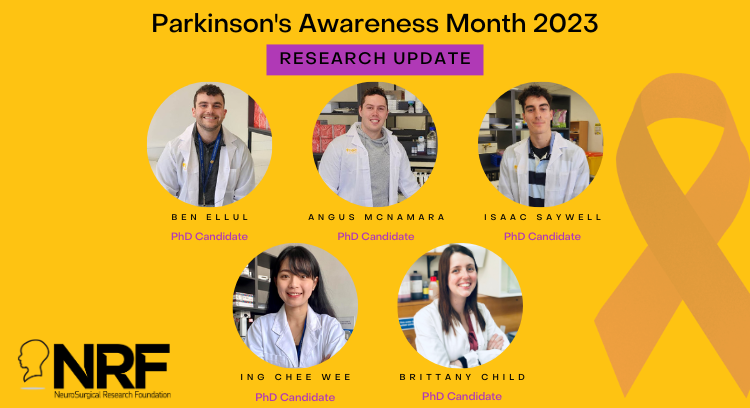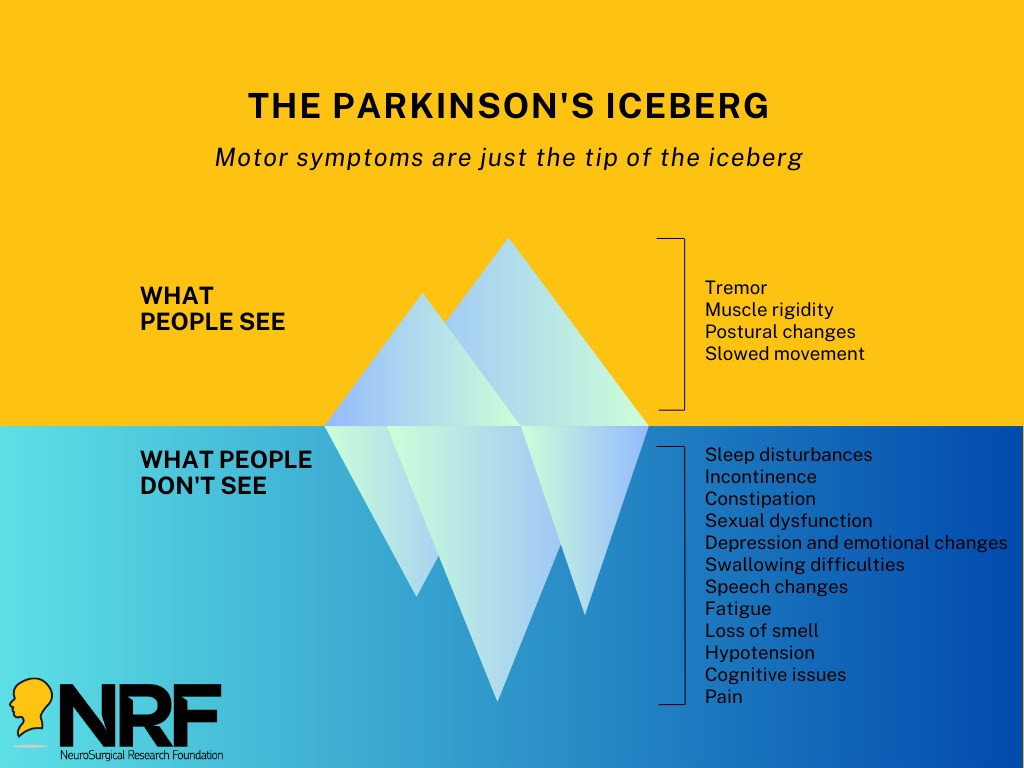Parkinson's Disease Awareness Month 2023
For Parkinson's Disease Awareness Month 2023, researchers from the Parkinson's Disease Research Group at the University of Adelaide discuss their latest research


Ing Chee Wee – Prodromal symptoms of Parkinson's following TBI in an experimental model

My name is Ing Chee Wee, and I am currently a fourth-year PhD student at the University of Adelaide working under the supervision of A/P Lyndsey Collins Praino.
What motivated you to pursue this area of research?
My interest in neuroscience research began during my honours year at SAHMRI, where Professor Christopher Proud introduced me to the protein translation initiation pathway and its role in neuronal growth. This was a departure from my previous studies in biochemistry, microbiology, and immunology. After completing my honours, I was fortunate enough to cross paths with Lyndsey and pursue my passion for neuroscience research.
Can you describe your current research?
My PhD project focuses on investigating the relationship between traumatic brain injury (TBI) severity and the risk of developing Parkinson's disease (PD). As we all aware of, the cause of PD is still not known. Although there is growing evidence suggesting that TBI is a significant risk factor, the mechanisms underlying the progression of the disease and whether they differ based on the severity of the initiating injury, remain largely unknown.
In my study, I am specifically looking at the effects of neuroinflammation and disruptions to dopaminergic and noradrenergic signalling pathways at chronic timepoints following different severity of TBI in an experimental model. Based on our current results, a significant disruption in the noradrenergic signalling pathway was observed in both the substantia nigra and striatum 12 months following moderate to severe TBI, which is equivalent to 30 years in the human lifespan. Mild neuroinflammation was also observed in these brain regions. In contrast, no such disruptions were observed in the mild TBI and repetitive mild TBI models, which is an interesting finding that requires further investigation to understand the implications for the progression of PD and potential diagnostic applications.
Can you describe the significance of this research and how it may benefit Parkinson’s patients?
This study is significant because TBI is a major public health concern and a leading cause of disability worldwide. Moreover, TBI not only could increase the risk of developing PD but also can have long-lasting effects on cognitive, emotional, and physical functioning. By studying the link between TBI and PD, we hope to gain a better understanding of its underlying mechanisms and identify strategies for prevention, early detection, and treatment.

Brittany Child – Cognitive function in different motor subtypes of Parkinson's disease
My name is Brittany Child, and I am a PhD student in the Cognitive and Neural Sciences (CNS) Laboratory at the University of Adelaide. My PhD research focuses on better understanding the relationship between motor function and cognitive impairment in Parkinson's disease.
What research are you currently working on?
The main aim of my research is to explore how motor symptoms in Parkinson's disease might co-occur with, and be used to predict, cognitive impairment. Parkinson's disease is highly heterogenous in its presentation, with patients showing a wide range of different symptoms. This includes motor symptoms – such as tremor, bradykinesia (slowed movement), and rigidity – and non-motor symptoms - such as gastrointestinal problems, sleep problems, and impaired cognition. These non-motor symptoms are often under-recognised, despite being a major determinant of quality of life for both patients and their carers.
My research is specifically focused on the non-motor symptom of cognitive impairment. Cognitive impairment refers to problems in areas of cognition such as memory, attention, and decision-making. Although cognitive impairment is common in Parkinson's disease, not everyone with Parkinson's will experience cognitive decline. Among those who do show signs of cognitive impairment, some will have mild cognitive impairment (MCI), whilst others will be diagnosed with Parkinson's disease dementia (PDD). I'm investigating whether these differences in cognitive outcomes might be predicted by differences in motor symptom profile. Previous research has, for example, suggested that people with tremor-dominant motor symptoms are less likely to be cognitively impaired. My research will seek to replicate this finding using motor and cognitive assessment tools that are more sensitive than those used in previous studies. Using these novel assessments will allow us to explore the nature of this 'preserved cognition' in more detail – are there perhaps specifically areas of cognition, like memory or attention, that are better preserved than others?
Can you describe the significance of this research and the potential impact of your findings?
Parkinson's disease is currently the fastest growing neurological disorder globally – and there are even suggestions that COVID-19 infection may place individuals at increased risk of developing Parkinson's disease in later life. This means that an increasing number of individuals are going to be affected by this neurodegenerative disease in coming years. Improving the diagnosis, prognosis, and treatment of Parkinson's therefore has the potential to enhance many older adults' quality of life. Until relatively recently, the non-motor symptoms of Parkinson's have been under-recognised and under-researched. Cognitive impairment can have a significant impact on an individual's ability to complete everyday tasks and live independently, so it's especially important that we improve our understandings of how cognitive impairment presents in Parkinson's disease.
By improving our understanding of cognitive impairment in Parkinson's disease – both in terms of the individuals most likely to experience cognitive decline and the areas of cognition most affected – our research will hopefully improve diagnosis and prognosis for people with Parkinson's. The findings from our research will also be able to inform future research on strategies for preventing and treating cognitive impairment in people with Parkinson's.
How do you hope this research will benefit patients?
By understanding the relationship between motor function and cognitive impairment in Parkinson's disease, we hope to improve prognostic accuracy for individuals with Parkinson's disease. Given that Parkinson's is highly heterogenous in its presentation, it can be difficult for clinicians to offer patients with a clear picture of what they can expect as the disease progresses. For patients and their carers, this uncertainty regarding the future can be the cause of considerable stress and anxiety. By better understanding how motor symptoms relate to cognitive changes in Parkinson's, clinicians may be able to leverage their understanding of an individual's motor symptom profile to give more accurate information regarding the likelihood of future cognitive impairment – and the nature of this cognitive impairment.






